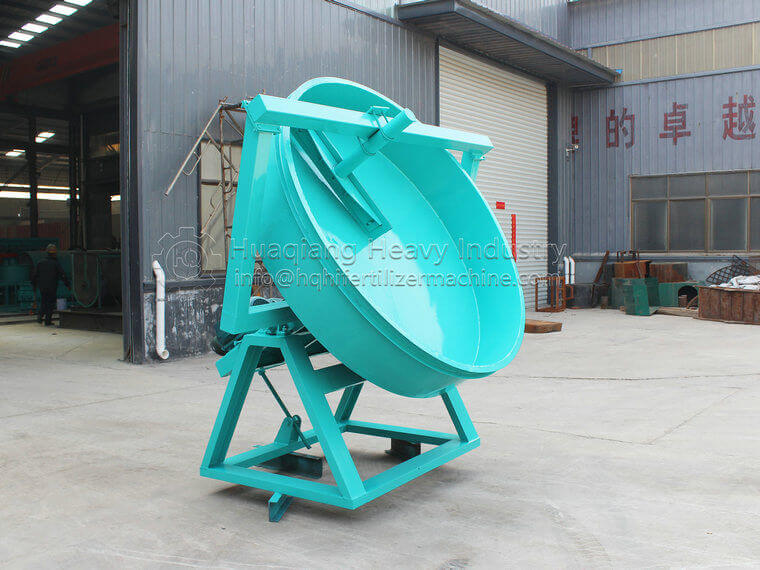With the continuous expansion of the organic fertilizer market, various organic fertilizer equipment manufacturers have developed organic fertilizer equipment including various granulators, such as roller extrusion granulators, npk fertilizer granulator, disc granulator machine, and new organic fertilizers. Granulator, new compound fertilizer granulator, flat die granulator, ring die granulator, all kinds of granulators have their own production characteristics, and the fertilizer granulator machine price varies.
Small and medium-sized organic fertilizer plants generally use disc granulator machine for granulation, which is a more traditional granulation process. Disc granulator, smooth granulation, good sales and low equipment price.In this way, investment costs can be saved, and the ball formation rate is also high, which can reach more than 93%.

So how to use the disc granulator to produce uniform, smooth and complete organic fertilizer?
1. First of all to control the quality of the material. According to the organic fertilizer formula, the quality of various raw materials is carefully controlled. It is strictly forbidden to have iron blocks, stones larger than 10mm, wood blocks, etc., and rice bran and sand should not be too much. At the same time, attention should be paid to ensure that the feeding is uniform and sufficient.
2. Select the disc granulator nozzle and debug it. When the liquid is sprayed from the nozzle, the higher the pressure, the smaller the hole, and the larger the droplet diffusion surface. Under the same pressure, the nozzle orifice is small, the droplet density is small, the nozzle hole is large, the droplet density is large, the angle of the granulation disc must be adjusted to a certain position, and the angle is determined according to the desired particle size. The smaller, the smaller the angle, the larger the particles.
3. Control the water content of the granulated particles. Moisture content refers to grasping the pre-balled material in the disc and releasing it with a light touch of your fingers.
4. Relevant technical training for operators. In fact, sometimes no matter how well the equipment is commissioned, it ultimately depends on the field operation of the operator.